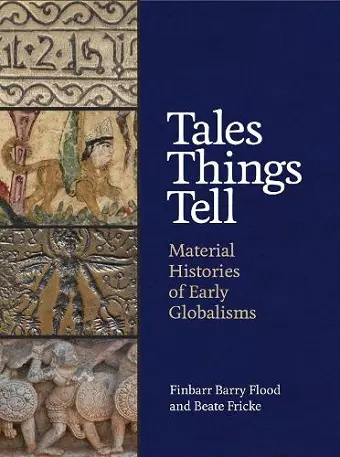Tales Things Tell
Material Histories of Early Globalisms
Finbarr Barry Flood author Beate Fricke author
Format:Hardback
Publisher:Princeton University Press
Published:12th Dec '23
Should be back in stock very soon

New perspectives on early globalisms from objects and images
Tales Things Tell offers new perspectives on histories of connectivity between Africa, Asia, and Europe in the period before the Mongol conquests of the thirteenth century. Reflected in objects and materials whose circulation and reception defined aesthetic, economic, and technological networks that existed outside established political and sectarian boundaries, many of these histories are not documented in the written sources on which historians usually rely. Tales Things Tell charts bold new directions in art history, making a compelling case for the archival value of mobile artifacts and images in reconstructing the past.
In this beautifully illustrated book, Finbarr Barry Flood and Beate Fricke present six illuminating case studies from the sixth to the thirteenth centuries to show how portable objects mediated the mobility of concepts, iconographies, and techniques. The case studies range from metalwork to stone reliefs, manuscript paintings, and objects using natural materials such as coconut and rock crystal. Whether as booty, commodities, gifts, or souvenirs, many of the objects discussed in Tales Things Tell functioned as sources of aesthetic, iconographic, or technical knowledge in the lands in which they came to rest. Remapping the histories of exchange between medieval Islam and Christendom, from Europe to the Indian Ocean, Tales Things Tell ventures beyond standard narratives drawn from written archival records to demonstrate the value of objects and images as documents of early globalisms.
"Winner of the International Center of Medieval Art Book Prize"
"A multifaceted, nuanced investigation of connections between medieval Europe, Africa, and Asia through objects, materials, and technologies. The authors strike a balance between texts and objects as primary sources, providing the reader with an exemplary methodological approach." * Choice *
"Beate Fricke and Finbarr Barry Flood have made a major contribution to art history and the interdisciplinary practice of medieval studies with their eminently readable study, Tales Things Tell: Material Histories of Early Globalisms. . . . This text is already reconfiguring conversations in the discipline about how collaborative approaches to premodern material might transform our archives and their interpretation." * International Center of Medieval Art *
ISBN: 9780691215150
Dimensions: unknown
Weight: unknown
304 pages